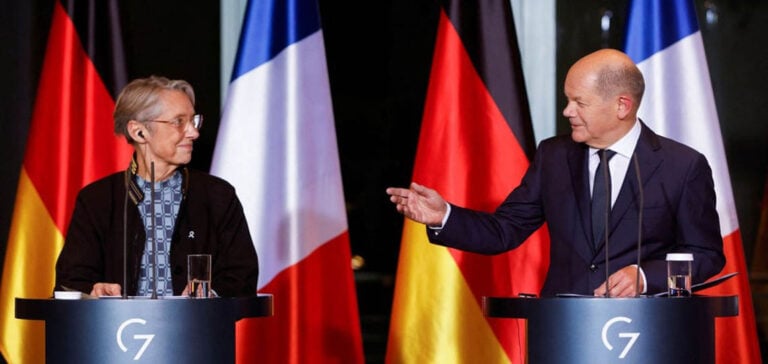The French-German dispute over nuclear power reflects the profound differences between the two nations on energy policy. France recently reiterated its call for nuclear power to be recognized as a low-carbon means of producing hydrogen. He thus exposed himself to a new confrontation with Germany over the role of atomic energy.
The Energy Challenges of Green Hydrogen
There’s no doubt that the development of the green hydrogen market is an essential pillar in achieving the European Union’s ambitious climate goals. However, a crucial issue is currently dividing two of Europe’s major powers: France and Germany. This dispute concerns the role of nuclear power in the production of low-carbon hydrogen.
Call from France
France’s ambassador to Germany, François Delattre, stressed the importance of ensuring equal treatment for renewable and low-carbon hydrogen. He asserted that progress must be made in this area, while calling for joint mobilization to achieve it. Nuclear power is at the heart of this controversy, directly influencing decisions taken in Brussels concerning the “green” energy policies currently being drawn up.
The H2Med Project
Mr. Delattre expressed these views at the Berlin presentation of the H2Med project, an ambitious undersea pipeline to bring hydrogen from the Iberian Peninsula to the rest of Europe. The project is billed as “the first green hydrogen corridor to Germany”, underlining the importance of hydrogen in Europe’s energy transition.
Past compromises
The Franco-German dispute over nuclear power in Europe’s energy plans has led to some compromises in the past, notably on the reform of the European electricity market and the renewable energies directive. However, other crucial texts are still under discussion, notably the “gas package”, which will shape the hydrogen market, a cornerstone of the EU’s climate objectives.
Closing Germany’s Atomic Power Plants
Nuclear power plays a central role in the French energy model, while Germany closed its last atomic power plants this year. In January, Germany joined the H2Med project, which involves the construction of a major undersea pipeline linking the port of Barcelona in northeast Spain to that of Marseille in France. The pipeline is due to be completed by 2030, and will make a significant contribution to the European Union’s estimated hydrogen needs.
International Support for the H2Med Project
Franziska Brantner, State Secretary at the German Ministry of Economic Affairs, highlighted the challenges encountered in moving the project forward, but expressed optimism that it was heading in the right direction. French operators GRTgaz and Teréga, Spain’s Enagás, Portugal’s REN, and German gas transmission system operator OGE have officially joined the H2Med project, underlining the international nature of this initiative.
The Impact of Conflict Resolution
In a Europe resolutely committed to energy transition, the debate between France and Germany on nuclear power and green hydrogen is of the utmost importance. How this controversy is resolved will significantly influence the continent’s energy trajectory and its impact on climate objectives. It is essential that the two nations work together to find solutions for a cleaner, sustainable energy future for Europe.





















